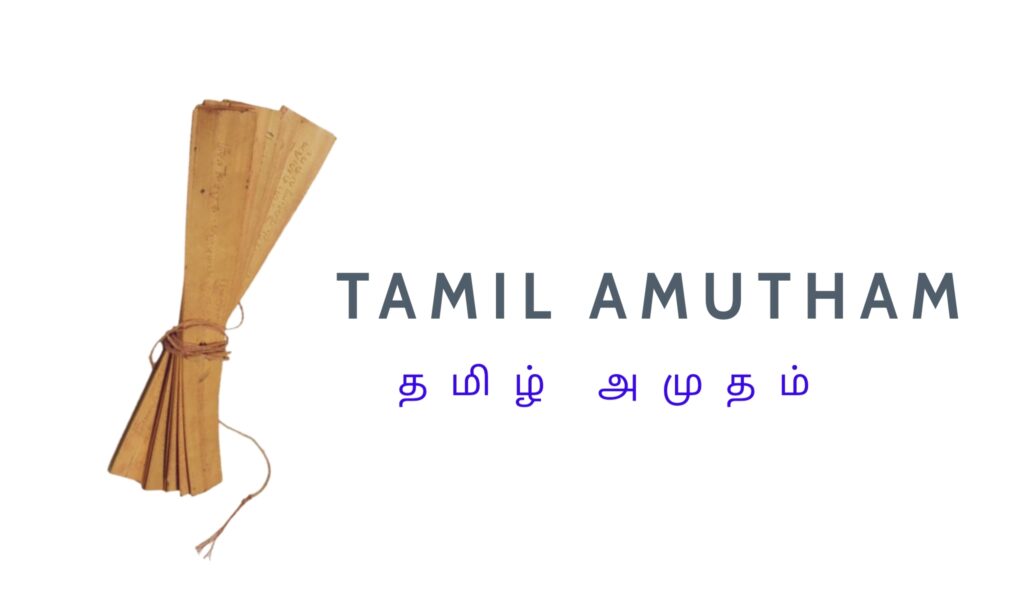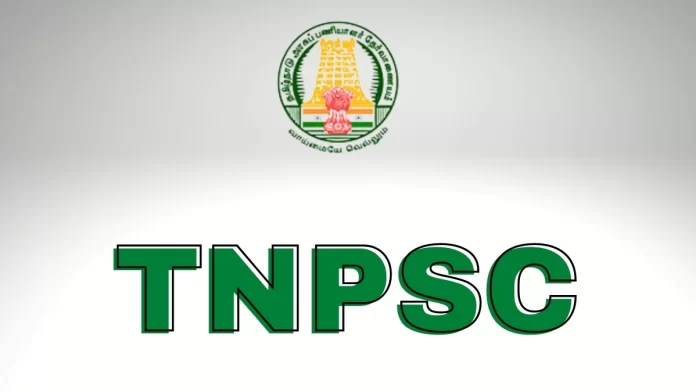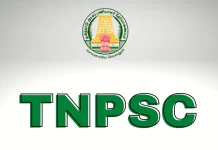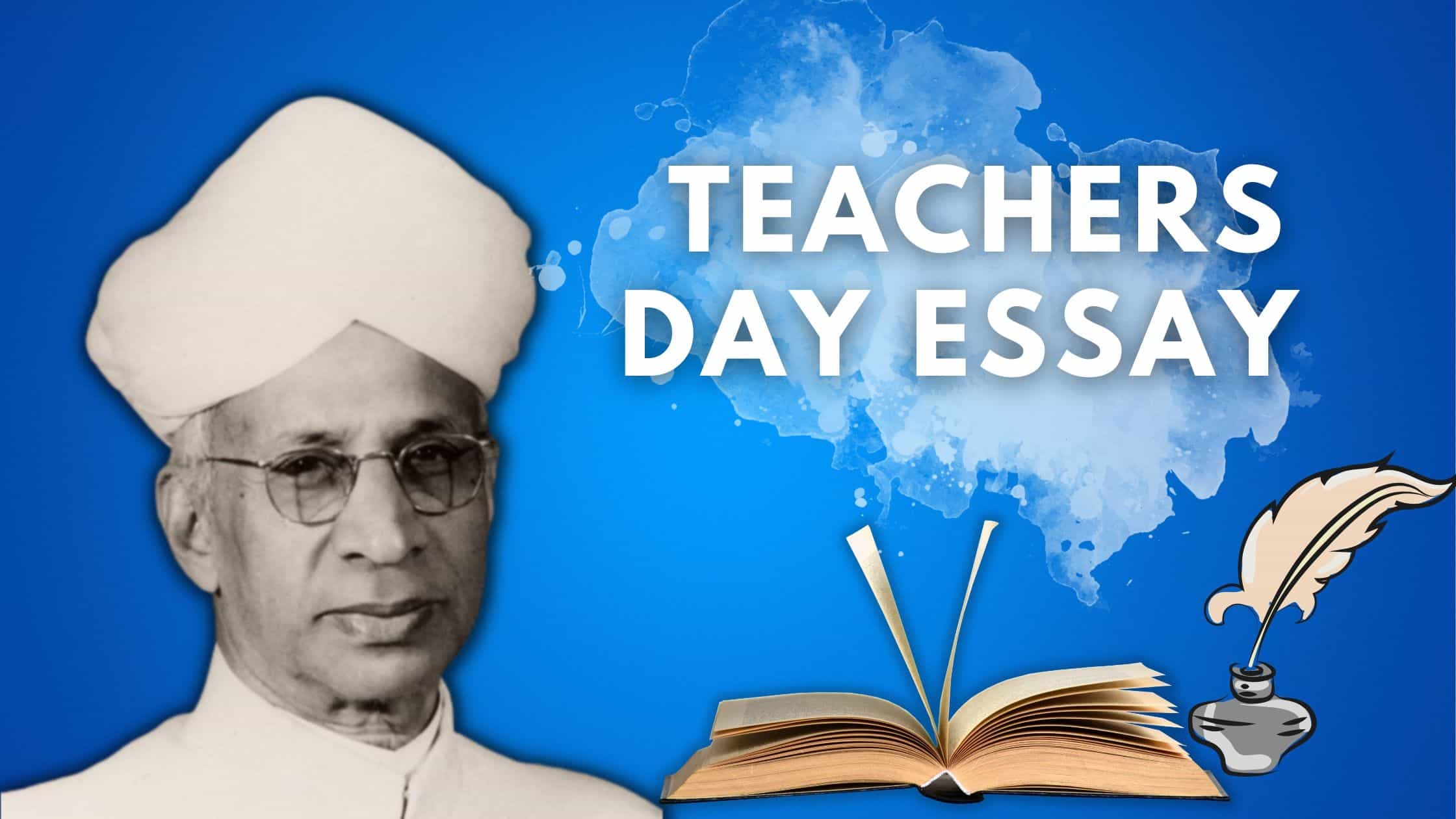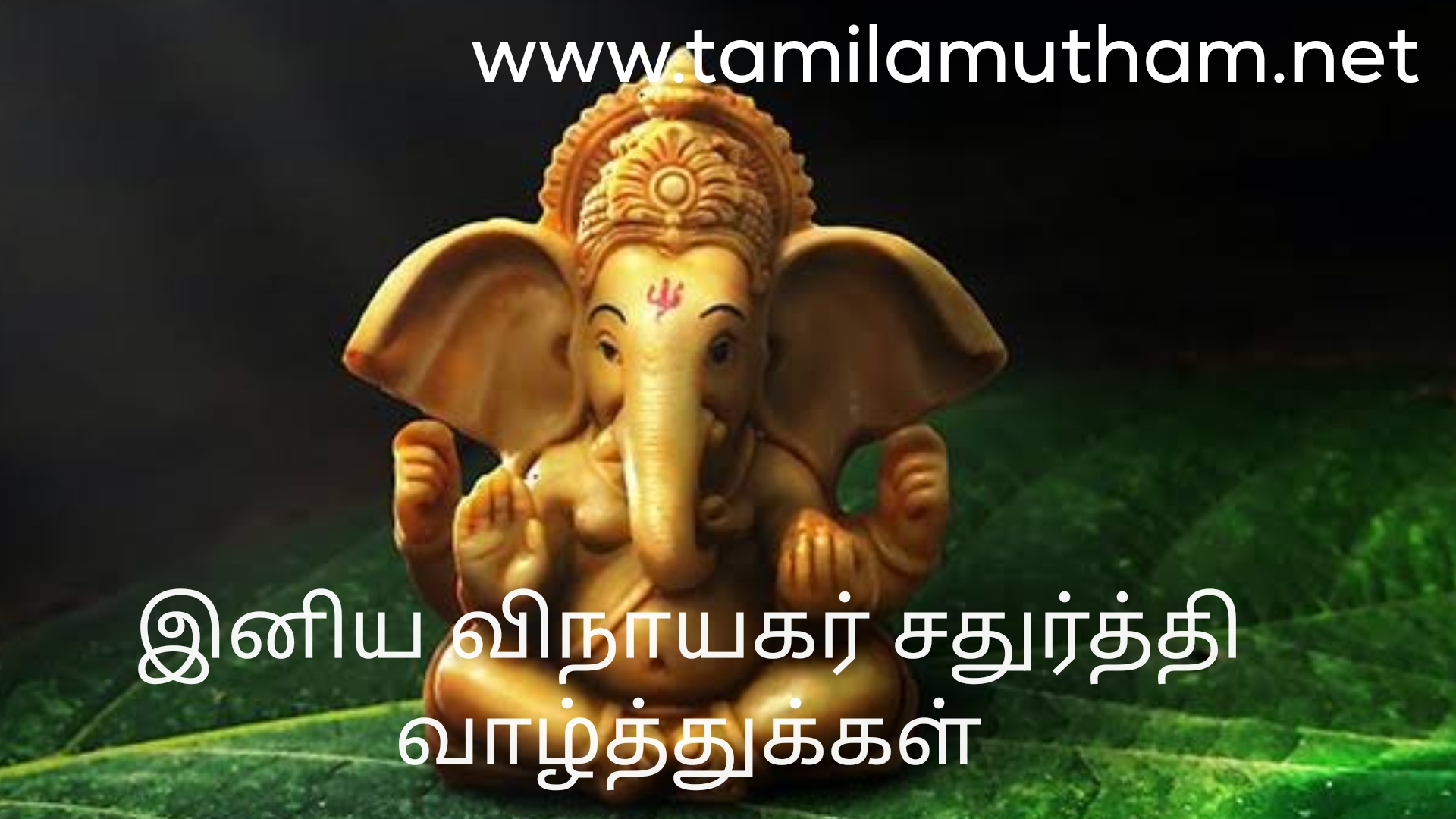NATIONAL EDUCATIONAL ALLIANCE FOR TECHNOLOGY (NEAT) / தொழில்நுட்பத்திற்கான தேசிய கல்விக் கூட்டணி
TAMIL
- 2019 ஆம் ஆண்டில், மனிதவள மேம்பாட்டு அமைச்சகம் தொழில்நுட்பத்திற்கான தேசிய கல்விக் கூட்டணி (NEAT) திட்டத்தை அறிவித்தது, இது பொது-தனியார் கூட்டாண்மை PPP மாதிரியைப் பயன்படுத்தும்.
- மனித வள மேம்பாட்டு அமைச்சகம் (HRD) 2020 இல் கல்வி அமைச்சகம் என மறுபெயரிடப்பட்டது
- எட்டெக் நிறுவனங்களால் வழங்கப்படும் தொழில்நுட்ப தீர்வுகளுக்கு ஒரே இடத்தில் அணுகலை வழங்குவதற்காக தேசிய நீட் தளத்தை MHRD உருவாக்கியது.
- கற்றவர்களின் பதிவு எட்டெக் நிறுவனங்களால் நீட் போர்டல் மூலம் செய்யப்படும். தீர்வுகளை உருவாக்குவது EdTech நிறுவனங்களின் பொறுப்பாகும், மேலும் அவர்களின் கொள்கையின்படி கட்டணம் வசூலிக்கலாம்.
- EdTech நிறுவனங்கள் NEAT போர்டல் மூலம் தங்கள் தீர்வுக்காக மொத்த பதிவுகளில் 25% அளவிற்கு இலவச கூப்பன்களை வழங்க வேண்டும்.
- இலவச கூப்பன்கள் விநியோகம் MHRD இன் பொறுப்பாகும். சமூக/பொருளாதார ரீதியாக மிகவும் பின்தங்கிய மாணவர்களுக்கு இவை வழங்கப்படும்.
- எட்டெக் தீர்வுகளைத் தேர்ந்தெடுப்பதற்கும் அவற்றை மதிப்பீடு செய்வதற்கும் சுயாதீன நிபுணர் குழுக்கள் அமைக்கப்படும்.
- பட்டியலிடப்பட்ட எட்டெக் நிறுவனங்களுடன் புரிந்துணர்வு ஒப்பந்தங்கள் கையெழுத்திடப்படும்.
தொழில்நுட்பத்திற்கான தேசிய கல்விக் கூட்டணி (NEAT) 3.0
- NEAT 3.0 என்பது மாணவர்களுக்கு சிறந்த வளர்ச்சியடைந்த எட்-டெக் தீர்வுகள் மற்றும் படிப்புகளை வழங்குவதற்கான ஒரே தளமாகும்.
- 58 உலகளாவிய மற்றும் இந்திய ஸ்டார்ட்-அப் எட்-டெக் நிறுவனங்கள், திறன் மேம்பாடு, கற்றல் விளைவுகளை மேம்படுத்துதல் மற்றும் கற்பவர்களின் வேலைவாய்ப்பு திறன்களை மேம்படுத்துதல் ஆகியவற்றிற்காக 100 படிப்புகள் மற்றும் மின்-வளங்களை வழங்கும் இந்த ஒரே தளத்தில் உள்ளன.
- சமூக மற்றும் பொருளாதார ரீதியாக பின்தங்கிய மாணவர்களுக்கு ரூ.253.72 கோடி மதிப்பிலான 12 லட்சம் நீட் எட்-டெக் இலவச பாடநெறி கூப்பன்களும் வழங்கப்பட்டன.
- திறன் இந்தியாவுடன் நீட் திட்டத்தில் படிப்புகளை ஒருங்கிணைக்க ஏஐசிடிஇ-யை மத்திய அமைச்சர் வலியுறுத்தியுள்ளார். இது, வளர்ந்து வரும் திறன் துறைகளில் வாய்ப்புகளைக் கண்டறிந்து, இளைஞர்களை எதிர்காலத்திற்குத் தயார்படுத்துவதன் மூலம் வேலைவாய்ப்பைத் தூண்டுவதற்கு உதவும்.
- ஏஐசிடிஇ மற்றும் எட்-டெக் நிறுவனங்களுக்கு மின் வளங்களை குறைந்தபட்ச செலவில் வழங்குமாறு அவர் பரிந்துரைத்துள்ளார்.
NEAT 3.0 இன் நன்மைகள்
- NEAT ஆனது டிஜிட்டல் பிளவைக் குறைக்க உதவும், குறிப்பாக பொருளாதார ரீதியாக பின்தங்கிய மாணவர்களிடையே.
- இந்தியா மற்றும் உலக நாடுகளின் அறிவு அடிப்படையிலான தேவையை நிறைவேற்றவும் இது உதவும்.
NEAT ஐ செயல்படுத்தும் நிறுவனம் யார்?
- அகில இந்திய தொழில்நுட்பக் கல்வி கவுன்சில் (ஏஐசிடிஇ) இத்திட்டத்தை செயல்படுத்தும் நிறுவனமாகும்.
- MHRD (தற்போது கல்வி அமைச்சகம்) ஆல் அமைக்கப்பட்ட உச்சக் குழுவின் வழிகாட்டுதலின் கீழ் இத்திட்டம் நிர்வகிக்கப்படுகிறது.
NEAT இன் நோக்கம் என்ன?
- உயர்கல்வியில் சிறந்த கற்றல் விளைவுகளுக்கு தொழில்நுட்பத்தைப் பயன்படுத்துதல்.
- மாணவர்கள் அல்லது கற்பவர்களின் வசதிக்காக கல்வி கற்பித்தலில் சிறந்த தொழில்நுட்ப தயாரிப்புகளை ஒரே தளத்தில் கொண்டு வருதல்.
- ஒரே தளத்தில் இளைஞர்களின் வேலைவாய்ப்பை மேம்படுத்துதல்.
- சிறந்த கற்றல் முடிவுகள் மற்றும் திறன் மேம்பாட்டிற்காக தனிப்பயனாக்கப்பட்ட மற்றும் தனிப்பயனாக்கப்பட்ட கற்றல் அனுபவத்திற்காக செயற்கை நுண்ணறிவைப் பயன்படுத்துதல்.
- ஏ.ஐ.சி.டி.இ., எம்.ஓ.இ., உதவியாளராகச் செயல்படுவதோடு, சமூக ரீதியாகவும் பொருளாதார ரீதியாகவும் பின்தங்கிய ஏராளமான மாணவர்களுக்கு தீர்வுகள் இலவசமாகக் கிடைப்பதை உறுதிசெய்வதை நோக்கமாகக் கொண்டுள்ளது.
ENGLISH
- In 2019, the Ministry of Human Resource Development had announced the National Educational Alliance for Technology (NEAT) programme, which would make use of the Public-Private partnership PPP model.
- The Ministry of Human Resource Development (HRD) was renamed the Ministry of Education in 2020
- MHRD created a National NEAT platform to give one-stop access to the technological solutions provided by the EdTech companies..
- Registration of the learners would be done through the NEAT portal by the EdTech companies. Development of solutions would also be the responsibility of the EdTech companies and could charge fees as per their policy.
- EdTech companies would have to provide free coupons to the extent of 25% of the total registrations for their solution through NEAT portal.
- The distribution of free coupons would be the responsibility of the MHRD. These would be given to the most socially/economically backward learners.
- Independent Expert Committees would be constituted to select the EdTech solutions and evaluate them as well.
- MoUs will be signed with the shortlisted EdTech companies.
National Educational Alliance for Technology (NEAT) 3.0
- NEAT 3.0 is a single platform to give the best-developed ed-tech solutions and courses to students.
- 58 global and Indian start-up ed-tech companies are onboard this single platform providing 100 courses & e-resources for capacity building, improving the learning outcomes, and developing employable skills of the learners.
- 12 Lakh NEAT ed-tech free course coupons worth Rs 253.72 crore were also provided to socially and economically disadvantaged students. The Union Minister has urged the AICTE to integrate courses in the NEAT programme with skill India.
- This will help in stimulating employability by finding the opportunities in emerging areas of skill and prepare the youth for the future. He has suggested the AICTE and ed-tech companies to provide e-resources at minimum possible cost.
Benefits of NEAT 3.0
- NEAT will help in bridging the digital divide, especially among the economically disadvantaged learners.
- It will also help in fulfilling the knowledge-based requirement of India and the world.
Who is the implementing agency of NEAT?
- All India Council for Technical Education (AICTE) is the implementing agency for the programme.
- The scheme is administered under the guidance of an Apex Committee constituted by the MHRD (now the Ministry of Education)
What is the aim of NEAT?
- To use technology for better learning outcomes in Higher Education.
- To bring the best technological products in education pedagogy on a single platform for the convenience of students or learners.
- To improve the employability of the youth on a single platform.
- To use Artificial Intelligence for a personalized and customized learning experience for better learning outcomes and skill development.
- AICTE, MoE act as the facilitator and aim to ensure that the solutions are freely available to a larger number of socially and economically disadvantaged learners.
UNITED NATIONS COMMISSION ON THE STATUS OF WOMEN (CSW) / பெண்களின் நிலை குறித்த ஐக்கிய நாடுகள் ஆணையம்
TAMIL
- UNCSW அல்லது வெறுமனே CSW என்பது பெண்கள் அதிகாரமளித்தல் மற்றும் பாலின சமத்துவத்தை மேம்படுத்துவதற்காக அர்ப்பணிக்கப்பட்ட தலைமை சர்வதேச அரசுகளுக்கிடையேயான அமைப்பாகும்.
- இது ஐக்கிய நாடுகள் சபையின் முக்கிய உறுப்புகளில் ஒன்றான பொருளாதார மற்றும் சமூக கவுன்சிலின் (ECOSOC) கீழ் செயல்படுகிறது. இது 1946 இல் ECOSOC இன் தீர்மானத்தால் நிறுவப்பட்டது.
- உலகெங்கிலும் உள்ள பெண்களின் வாழ்க்கையின் நிலையை CSW ஆவணப்படுத்துகிறது மேலும் பெண்கள் அதிகாரமளித்தல் மற்றும் பாலின சமத்துவம் குறித்த உலகளாவிய தரநிலைகளை அமைப்பதற்கும் பாடுபடுகிறது.
- 1996 ஆம் ஆண்டில், பெய்ஜிங் பிரகடனம் மற்றும் நடவடிக்கைக்கான தளத்தை செயல்படுத்துவதில் முன்னேற்றம் மற்றும் சிக்கல்களை மேற்பார்வையிடுதல் மற்றும் மதிப்பாய்வு செய்தல் ஆகியவற்றை உள்ளடக்கிய ஆணையத்தின் ஆணையை ECOSOC விரிவுபடுத்தியது.
- விரிவாக்கப்பட்ட ஆணையில் ஐ.நா.வின் அனைத்து நடவடிக்கைகளிலும் பாலினக் கண்ணோட்டத்தைக் கொண்டு வருவதும் அடங்கும்.
- ஆணைக்குழு அதன் செயலகமான ஐ.நா பெண்களால் அதன் பணியில் ஆதரிக்கப்படுகிறது.
- CSW இன் தலைமையகம் அமெரிக்காவின் நியூயார்க்கில் உள்ளது.
CSW மற்றும் இந்தியா
- சமீபத்திய வளர்ச்சியில், இந்தியா 2021 முதல் 2025 வரை நான்கு ஆண்டுகளுக்கு CSW க்கு தேர்ந்தெடுக்கப்பட்டது.
- இந்தியாவுடன் ஆப்கானிஸ்தானும் கமிஷனுக்கு தேர்ந்தெடுக்கப்பட்டது, அதே நேரத்தில் சீனா ஒரு இடத்தைப் பெறத் தவறிவிட்டது.
CSW முக்கியத்துவம்
- உலகளவில் பெண்களின் சமூக, பொருளாதார மற்றும் அரசியல் உரிமைகளை மேம்படுத்துவதில் ஆணையம் முக்கியப் பங்காற்றியுள்ளது.
- பெண்களின் அரசியல் உரிமைகளை அங்கீகரித்து பாதுகாப்பதற்கான முதல் சர்வதேச சட்டக் கருவி, பெண்களின் அரசியல் உரிமைகளுக்கான மாநாடு (1953), UNCSW ஆல் உருவாக்கப்பட்டது.
ஆணைக்குழுவால் வரையப்பட்ட வேறு சில முக்கிய மரபுகள்
- திருமணமான பெண்களின் தேசியம் பற்றிய மாநாடு (1957) – திருமணமான பெண்களின் உரிமைகள் பற்றிய முதல் சர்வதேச ஒப்பந்தம்.
- திருமணத்திற்கான சம்மதம் (1962)
- திருமணம் மற்றும் திருமணங்களை பதிவு செய்வதற்கான குறைந்தபட்ச வயது (1962)
- பெண்களுக்கு எதிரான அனைத்து வகையான பாகுபாடுகளையும் நீக்குவதற்கான மாநாடு (CEDAW) (1979)
- 1995 ஆம் ஆண்டு பெண்கள் மீதான நான்காவது உலக மாநாட்டிற்கான ஆயத்த அமைப்பாக ஆணையம் செயல்பட்டது, இது பெய்ஜிங் பிரகடனம் மற்றும் நடவடிக்கைக்கான தளத்தை ஏற்றுக்கொண்டது.
- பல ஆண்டுகளாக, ஆணையம் சமூகத் தடைகள் மற்றும் உடைந்த ஸ்டீரியோடைப்களை வெளிச்சத்திற்குக் கொண்டு வந்துள்ளது.
- பெண்களின் உரிமைகள் மற்றும் முன்னேற்றங்கள் பற்றிய விவாதத்தில் இது ஒரு முக்கிய பங்கைக் கொண்டுள்ளது.
- எல்லா இடங்களிலும் பெண்கள் மற்றும் பெண்கள் எதிர்கொள்ளும் பாகுபாடுகள் மற்றும் ஏற்றத்தாழ்வுகள் பற்றியும் அது பேசியுள்ளது.
- ஆணைக்குழுவின் வருடாந்த அமர்வு உலகெங்கிலும் உள்ள பெண்களின் உரிமைகளுக்கான ஆதரவாளர்களின் மிகப்பெரிய கூட்டமாகும்.
- இரண்டு வார அமர்வின் முடிவில், அரசாங்கங்கள், தேசிய மனித உரிமை நிறுவனங்கள், ஐ.நா அமைப்பு, தனியார் துறை, சிவில் சமூகம், முதலாளி அமைப்புகள், தொழிற்சங்கங்கள், ஊடகங்கள் போன்றவற்றுக்கு CSW ‘ஒப்புக் கொண்ட முடிவுகளை’ கொண்டு வருகிறது.
ENGLISH
- The UNCSW or simply CSW is the chief international inter-governmental body dedicated to the promotion of women empowerment and gender equality.
- It functions under the Economic and Social Council (ECOSOC), one of the principal organs of the United Nations.
- It was established in 1946 by a resolution of the ECOSOC.
- The CSW documents the condition of women’s lives the world over and also strives for setting global standards on women empowerment and gender equality.
- In 1996, the ECOSOC expanded the mandate of the Commission to include supervising and reviewing progress and problems in the implementation of the Beijing Declaration and Platform for Action.
- The expanded mandate also includes bringing in a gender perspective in all of the UN’s activities.
- The Commission is supported in its work by UN Women, which is its Secretariat.
- CSW is headquartered in New York, USA.
CSW and India
- In a recent development, India was elected to the CSW for four years from 2021 to 2025. Along with India, Afghanistan was also elected to the Commission while China failed to win a seat.
CSW Significance
- The Commission has played a key role in the advancement of women’s social, economic and political rights worldwide.
- The first international law instrument to recognize and protect the political rights of women, the Convention on the Political Rights of Women (1953), was drafted by UNCSW.
- Convention on the Nationality of Married Women (1957) – first international agreement on the rights of married women.
- Convention on Consent to Marriage (1962)
- Minimum Age for Marriage and Registration of Marriages (1962)
- Convention on the Elimination of All Forms of Discrimination Against Women (CEDAW) (1979)
- The Commission served as the preparatory body for the 1995 Fourth World Conference on Women, which adopted the Beijing Declaration and Platform for Action.
- Over the years, the Commission has brought to light the social taboos and broken stereotypes.
- It has taken a leading role in the discussion around women’s rights and advancements.
- It has also talked about discrimination and inequalities faced by women and girls everywhere.
- The annual session of the Commission is the largest congregation of women’s rights advocates from all over the globe.
- At the end of the two-week session, the CSW comes up with ‘Agreed Conclusions’, for governments, national human rights institutions, the UN system, the private sector, civil society, employer organisations, trade unions, media, etc.
DHOLAVIRA / தோலாவிரா
TAMIL
- சமீபத்தில், யுனெஸ்கோ, குஜராத்தில் உள்ள ஹரப்பா நகரமான தோலாவிராவை இந்தியாவின் 40வது உலக பாரம்பரிய தளமாக அறிவித்துள்ளது. இந்தியாவில் சிந்து சமவெளி நாகரிகத்தின் (IVC) விரும்பத்தக்க பட்டியலில் சேர்க்கப்பட்ட முதல் தளம் இதுவாகும்.
- இந்த வெற்றிகரமான பரிந்துரையின் மூலம், இந்தியா இப்போது உலக பாரம்பரிய தள கல்வெட்டுகளுக்கான சூப்பர்-40 கிளப்பில் நுழைந்துள்ளது.
- இந்தியாவைத் தவிர, இத்தாலி, ஸ்பெயின், ஜெர்மனி, சீனா மற்றும் பிரான்ஸ் ஆகிய நாடுகளில் 40 அல்லது அதற்கு மேற்பட்ட உலக பாரம்பரிய தளங்கள் உள்ளன.
- இந்தியா ஒட்டுமொத்தமாக 40 உலக பாரம்பரிய தளங்களைக் கொண்டுள்ளது, இதில் 32 கலாச்சார, 7 இயற்கை மற்றும் ஒரு கலப்புச் சொத்துக்கள் அடங்கும். ராமப்பா கோவில் (தெலுங்கானா) இந்தியாவின் 39 வது உலக பாரம்பரிய தளமாகும்.
தோலாவிரா
- இது தெற்காசியாவில் மிகவும் குறிப்பிடத்தக்க மற்றும் நன்கு பாதுகாக்கப்பட்ட நகர்ப்புற குடியிருப்புகளில் ஒன்றாகும். இது 1968 இல் தொல்பொருள் ஆராய்ச்சியாளர் ஜகத் பதி ஜோஷியால் கண்டுபிடிக்கப்பட்டது.
- பாகிஸ்தானின் மொஹென்-ஜோ-தாரோ, கன்வேரிவாலா மற்றும் ஹரப்பா மற்றும் இந்தியாவின் ஹரியானாவில் உள்ள ராக்கிகர்ஹி ஆகிய நகரங்களுக்குப் பிறகு, தோலாவிரா சிந்து சமவெளி நாகரிகத்தின் (IVC) ஐந்தாவது பெரிய பெருநகரமாகும்.
- IVC 2,500 கி.மு., தெற்காசியாவின் மேற்குப் பகுதியில், இன்று பாக்கிஸ்தான் மற்றும் மேற்கு இந்தியாவில் வளர்ந்தது. இது அடிப்படையில் ஒரு நகர்ப்புற நாகரிகமாக இருந்தது மற்றும் மக்கள் நன்கு திட்டமிடப்பட்ட மற்றும் நன்கு கட்டப்பட்ட நகரங்களில் வாழ்ந்தனர், அவை வணிகத்திற்கான மையங்களாகவும் இருந்தன.
- இந்த தளத்தில் ஒரு பண்டைய IVC/ஹரப்பன் நகரத்தின் இடிபாடுகள் உள்ளன. இது இரண்டு பகுதிகளைக் கொண்டுள்ளது: ஒரு சுவர் நகரம் மற்றும் நகரின் மேற்கில் ஒரு கல்லறை.
- சுவர் நகரமானது, இணைக்கப்பட்ட பெய்லி மற்றும் சடங்கு மைதானத்துடன் கூடிய கோட்டையான கோட்டையையும், ஒரு வலுவூட்டப்பட்ட மிடில் டவுன் மற்றும் கீழ் நகரத்தையும் கொண்டுள்ளது.
- கோட்டையின் கிழக்கு மற்றும் தெற்கில் தொடர்ச்சியான நீர்த்தேக்கங்கள் காணப்படுகின்றன.
அமைவிடம்
- பழங்கால நகரம் தோலாவிரா என்பது குஜராத் மாநிலத்தில் உள்ள கச் மாவட்டத்தில் உள்ள ஒரு தொல்பொருள் தளமாகும், இது கிமு 3 முதல் 2 ஆம் மில்லினியம் வரை உள்ளது.
- தோலாவிராவின் இருப்பிடம் புற்று மண்டலத்தில் உள்ளது. இது கச்சா பாலைவன வனவிலங்கு சரணாலயத்தில் உள்ள காதிர் பந்தயம் தீவில் அமைந்துள்ளது.
- பொதுவாக ஆறுகள் மற்றும் வற்றாத நீர் ஆதாரங்களுக்கு அருகாமையில் அமைந்துள்ள மற்ற ஹரப்பன் முன்னோடி நகரங்களைப் போலல்லாமல், காதிர் தீவில் தோலாவிராவின் இடம் பந்தயம்.
- இது பல்வேறு கனிம மற்றும் மூலப்பொருள் ஆதாரங்களை (தாமிரம், ஷெல், அகேட்-கார்னிலியன், ஸ்டீடைட், ஈயம், கட்டுப்பட்ட சுண்ணாம்புக் கல் போன்றவை) பயன்படுத்துவதற்கான உத்தியாக இருந்தது.
- இது மாகன் (நவீன ஓமன் தீபகற்பம்) மற்றும் மெசபடோமிய பகுதிகளுக்கு உள் மற்றும் வெளி வர்த்தகத்தை எளிதாக்கியது.
தொல்லியல் கண்டுபிடிப்புகள்
- தாமிர உருக்காலையின் எச்சங்கள் தோலாவிராவில் வாழ்ந்த ஹரப்பன்கள் உலோகவியலை அறிந்திருந்தனர் என்பதைக் குறிக்கிறது.
- டெரகோட்டா மட்பாண்டங்கள், மணிகள், தங்கம் மற்றும் செம்பு ஆபரணங்கள், முத்திரைகள், மீன் கொக்கிகள், விலங்கு சிலைகள், கருவிகள், கலசங்கள் மற்றும் சில இறக்குமதி செய்யப்பட்ட பாத்திரங்கள் ஆகியவை இங்கு காணப்பட்ட கலைப்பொருட்கள்.
- தோலாவிராவின் வர்த்தகர்கள் இன்றைய ராஜஸ்தான் மற்றும் ஓமன் மற்றும் ஐக்கிய அரபு எமிரேட்ஸில் இருந்து தாமிரத் தாதுவைப் பெற்று, முடிக்கப்பட்ட பொருட்களை ஏற்றுமதி செய்ததாக நம்பப்படுகிறது.
- இது ஓடுகள் மற்றும் அரை விலையுயர்ந்த கற்கள், அகேட் போன்றவற்றால் செய்யப்பட்ட நகைகளை உற்பத்தி செய்யும் மையமாகவும் இருந்தது மற்றும் மரங்களை ஏற்றுமதி செய்ய பயன்படுத்தப்பட்டது.
- 10 பெரிய கல்வெட்டுகள், சிந்து சமவெளி எழுத்துக்களில் செதுக்கப்பட்டவை, ஒருவேளை உலகின் ஆரம்பகால அடையாள பலகை.
- பண்டைய நகரத்திற்கு அருகில் ஒரு புதைபடிவ பூங்கா உள்ளது, அங்கு மர புதைபடிவங்கள் பாதுகாக்கப்படுகின்றன.
- மற்ற IVC தளங்களில் உள்ள கல்லறைகளைப் போலல்லாமல், தோலாவிராவில் மனிதர்களின் மரண எச்சங்கள் எதுவும் கண்டுபிடிக்கப்படவில்லை.
தோலாவிரா தளத்தின் தனித்துவமான அம்சங்கள்
- தொடர் நீர் தேக்கங்கள்.
- வெளிப்புற கோட்டை.
- இரண்டு பல்நோக்கு மைதானங்கள், அவற்றில் ஒன்று விழாக்களுக்காகவும் மற்றொன்று சந்தையாகவும் பயன்படுத்தப்பட்டது.
- தனித்துவமான வடிவமைப்புகளுடன் ஒன்பது வாயில்கள்.
- பௌத்த ஸ்தூபிகள் போன்ற அரைக்கோளக் கட்டமைப்புகளைக் கொண்ட டூமுலஸ் கொண்ட இறுதிக் கட்டிடக்கலை.
- பல அடுக்கு தற்காப்பு வழிமுறைகள், கட்டுமானம் மற்றும் சிறப்பு அடக்கம் கட்டமைப்புகளில் கல் விரிவான பயன்பாடு.
தோலாவிராவின் சரிவு
- அதன் சரிவு மெசபடோமியாவின் சரிவுடன் ஒத்துப்போனது, இது பொருளாதாரங்களின் ஒருங்கிணைப்பைக் குறிக்கிறது.
- கடல்சார் மக்களாக இருந்த ஹரப்பன்கள், மெசபடோமியா வீழ்ச்சியடைந்தவுடன், உள்ளூர் சுரங்க, உற்பத்தி, சந்தைப்படுத்தல் மற்றும் ஏற்றுமதி வணிகங்களை பாதித்த பெரும் சந்தையை இழந்தனர்.
- காலநிலை மாற்றம் மற்றும் சரஸ்வதி போன்ற நதிகள் வறண்டு போனதால் தோலாவிரா கடுமையான வறட்சியின் கட்டத்தில் நுழைந்தது.
- வறட்சி போன்ற சூழ்நிலை காரணமாக, மக்கள் கங்கை பள்ளத்தாக்கு அல்லது தெற்கு குஜராத் மற்றும் அதற்கு அப்பால் மகாராஷ்டிராவை நோக்கி இடம்பெயரத் தொடங்கினர்.
- மேலும், தோலாவிரா அமைந்துள்ள காதிர் தீவைச் சுற்றியுள்ள கிரேட் ரான் ஆஃப் கட்ச், செல்லக்கூடியதாக இருந்தது. ஆனால் கடல் படிப்படியாக பின்வாங்கியது மற்றும் ரான் சேறும் சகதியுமாக மாறியது.
குஜராத்தில் உள்ள மற்ற ஹரப்பான் தளங்கள்
- லோதல் – தோலாவிரா அகழ்வாராய்ச்சி செய்யப்படுவதற்கு முன்பு, அகமதாபாத் மாவட்டத்தின் தோல்கா தாலுகாவில் சபர்மதியின் கரையில் உள்ள சரக்வாலா கிராமத்தில் உள்ள லோதல், குஜராத்தில் IVC இன் மிக முக்கியமான தளமாக இருந்தது.
- இது 1955 மற்றும் 1960 க்கு இடையில் தோண்டப்பட்டது மற்றும் மண் செங்கற்களால் செய்யப்பட்ட கட்டமைப்புகளுடன் பண்டைய நாகரிகத்தின் முக்கியமான துறைமுக நகரமாக கண்டறியப்பட்டது.
- லோதலில் உள்ள ஒரு கல்லறையில் இருந்து, 21 மனித எலும்புக்கூடுகள் கண்டெடுக்கப்பட்டன.
- செப்புப் பாத்திரங்கள் தயாரிப்பதற்கான அடித்தளங்களும் கண்டுபிடிக்கப்பட்டன.
- அரை விலையுயர்ந்த கற்கள், தங்கம் போன்றவற்றால் செய்யப்பட்ட ஆபரணங்களும் அந்த இடத்தில் இருந்து கண்டெடுக்கப்பட்டன.
- சுரேந்திரநகர் மாவட்டத்தில் பாதர் ஆற்றின் கரையில் உள்ள ரங்பூர் மாநிலத்தில் தோண்டப்பட்ட முதல் ஹரப்பா தளமாகும்.
- ராஜ்கோட் மாவட்டத்தில் ரோஜ்டி, கிர் சோம்நாத் மாவட்டத்தில் வெராவல் அருகே பிரபாஸ்.
- ஜாம்நகரில் உள்ள லகாபவல் மற்றும் கட்ச்சின் பூஜ் தாலுகாவில் உள்ள தேசல்பர் ஆகியவை மாநிலத்தின் மற்ற ஹரப்பான் தளங்களில் அடங்கும்.
குஜராத்தில் உள்ள மற்ற உலக தளங்கள்
- தோலாவிராவைத் தவிர, குஜராத்தில் 3 யுனெஸ்கோ உலக பாரம்பரிய தளங்கள் உள்ளன.
- அகமதாபாத் வரலாற்று நகரம்
- ராணி கி வாவ், படன்
- சம்பானேர் & பாவகாத்
ENGLISH
- Recently, UNESCO has announced the Harappan city of Dholavira in Gujarat as India’s 40th world heritage site. It is the first site of Indus Valley Civilisation (IVC) in India to be included on the coveted list.
- With this successful nomination, India now enters the Super-40 club for World Heritage Site inscriptions. Apart from India, Italy, Spain, Germany, China and France have 40 or more World Heritage sites.
- India has 40 world heritage sites overall, which includes 32 cultural, 7 natural and one mixed property. Ramappa Temple (Telangana) was India’s 39th World Heritage Site.
Dholavira
- It is one of the most remarkable and well-preserved urban settlements in South Asia.
- It was discovered in 1968 by archaeologist Jagat Pati Joshi.
- After Mohen-jo-Daro, Ganweriwala and Harappa in Pakistan and Rakhigarhi in Haryana of India, Dholavira is the fifth largest metropolis of Indus Valley Civilization (IVC). IVC flourished around 2,500 BC, in the western part of South Asia, what today is Pakistan and Western India. It was basically an urban civilization and the people lived in well-planned and well-built towns, which were also the centers for trade.
- The site contains ruins of an ancient IVC/Harappan city. It comprises two parts: a walled city and a cemetery to the west of the city. The walled city consists of a fortified Castle with attached fortified Bailey and Ceremonial Ground, and a fortified MiddleTown and a Lower Town.
- A series of reservoirs are found to the east and south of the Citadel.
Location
- The ancient city of Dholavira is an archaeological site at Kachchh District, in the state of Gujarat, which dates from the 3rd to mid-2nd millennium BCE. Dholavira’s location is on the Tropic of Cancer. It is located on Khadir bet island in the Kachchh Desert Wildlife Sanctuary in the Great Rann of Kachchh.
- Unlike other Harappan antecedent towns normally located near to rivers and perennial sources of water, the location of Dholavira in the island of Khadir bet. This was strategic to harness different mineral and raw material sources (copper, shell, agate-carnelian, steatite, lead, banded limestone, among others).
- It also facilitated internal as well as external trade to the Magan (modern Oman peninsula) and Mesopotamian regions.
Archeological Findings
- Artifacts that were found here include terracotta pottery, beads, gold and copper ornaments, seals, fish hooks, animal figurines, tools, urns, and some imported vessels.
- Remains of a copper smelter indicate Harappans, who lived in Dholavira, knew metallurgy.
- It is believed that traders of Dholavira used to source copper ore from present-day Rajasthan and Oman and UAE and exported finished products.
- It was also a hub of manufacturing jewellery made of shells and semi-precious stones, like agate and used to export timber.
- 10 large stone inscriptions, carved in Indus Valley script, perhaps the world’s earliest sign board.
- Near the ancient city is a fossil park where wood fossils are preserved.
- Unlike graves at other IVC sites, no mortal remains of humans have been discovered at Dholavira.
Distinct Features of the Dholavira Site
- Cascading series of water reservoirs.
- Outer fortification.
- Two multi-purpose grounds, one of which was used for festivities and other as a marketplace.
- Nine gates with unique designs.
- Funerary architecture featuring tumulus — hemispherical structures like the Buddhist Stupas.
- Multi-layered defensive mechanisms, extensive use of stone in construction and special burial structures.
Decline of Dholavira
- Its decline also coincided with the collapse of Mesopotamia, indicating the integration of economies.
- Harappans, who were maritime people, lost a huge market, affecting the local mining, manufacturing, marketing and export businesses once Mesopotamia fell.
- Dholavira entered a phase of severe aridity due to climate change and rivers like Saraswati drying up.
- Due to a drought-like situation, people started migrating toward the Ganges valley or towards south Gujarat and further beyond in Maharashtra.
- Further, the Great Rann of Kutch, which surrounds the Khadir island on which Dholavira is located, used to be navigable, but the sea receded gradually and the Rann became a mudflat.
Other Harappan Sites in Gujarat
- Lothal – Before Dholavira was excavated, Lothal, in Saragwala village on the bank of Sabarmati in Dholka taluka of Ahmedabad district, was the most prominent site of IVC in Gujarat.
- It was excavated between 1955 and 1960 and was discovered to be an important port city of the ancient civilisation, with structures made of mud bricks.
- From a graveyard in Lothal, 21 human skeletons were found.
- Foundries for making copperware were also discovered.
- Ornaments made of semi-precious stones, gold etc. were also found from the site.
- Rangpur on the bank of Bhadar river in Surendranagar district was the first Harappan site in the state to be excavated.
- Rojdi in Rajkot district, Prabhas near Veraval in Gir Somnath district.
- Lakhabaval in Jamnagar, and Deshalpar in Bhuj taluka of Kutch are among other Harappan sites in the state.
Other World Sites in Gujarat
- Other than Dholavira, there are 3 UNESCO World Heritage Sites in Gujarat.
- Historic city of Ahmedabad
- Rani ki Vav, Patan
- Champaner & Pavagadh
